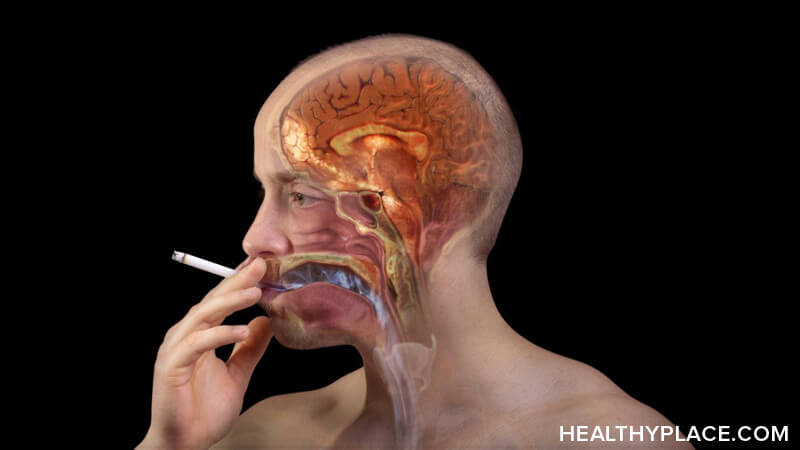Nicotine and the Brain: How Nicotine Affects the Brain

Research on nicotine and the brain reveals how nicotine affects the brain and provides clues in medical treatments for nicotine addiction.
Effects of Nicotine on the Brain
Research into the effects of nicotine on the brain has shown that nicotine, like cocaine, heroin, and marijuana, increases the level of the neurotransmitter dopamine, which affects the brain pathways that control reward and pleasure. Scientists have pinpointed a particular molecule [the beta 2 (b2)] subunit of the nicotine cholinergic receptor as a critical component in nicotine addiction. Mice that lack this subunit fail to self-administer nicotine, implying that without the b2 subunit, the mice do not experience the positive reinforcing properties of nicotine. This finding identifies a potential site for targeting the development of nicotine addiction medications.
Nicotine and the Brain: The Role of Genetics
Other research on nicotine and the brain found that individuals have greater resistance to nicotine addiction if they have a genetic variant that decreases the function of the enzyme CYP2A6. The decrease in CYP2A6 slows the breakdown of nicotine and protects individuals against nicotine addiction. Understanding the role of this enzyme in nicotine addiction gives a new target for developing more effective medications to help people quit smoking. Medications might be developed that can inhibit the function of CYP2A6, thus providing a new approach to preventing and treating nicotine addiction.
Nicotine Affects the Brain Pleasure Centers
Another study found how nicotine affects the brain. Dramatic changes in the brain's pleasure circuits were spotted during withdrawal from chronic tobacco use. These changes are comparable in magnitude and duration to similar changes observed during withdrawal from other abused drugs such as cocaine, opiates, amphetamines, and alcohol. Scientists found significant decreases in the sensitivity of the brains of laboratory rats to pleasurable stimulation after nicotine administration was abruptly stopped. These changes lasted several days and may correspond to the anxiety and depression experienced by humans for several days after quitting smoking "cold turkey." The results of this research may help in the development of better treatments for the nicotine withdrawal symptoms that may interfere with individuals' attempts to quit.
Sources:
- National Institute on Drug Abuse
APA Reference
Gluck, S.
(2021, December 16). Nicotine and the Brain: How Nicotine Affects the Brain, HealthyPlace. Retrieved
on 2026, January 14 from https://www.healthyplace.com/addictions/articles/nicotine-and-the-brain-how-nicotine-affects-the-brain


